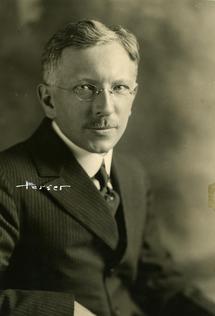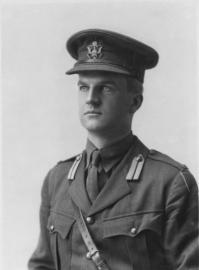
IRIS login | Reed College home Volume 96, No. 2: June 2017
Tags
"William T Foster"
Paradox Embraced: A History of Reed Presidents
Reed's presidential history, like that of the college itself, is a history of paradoxes.
This was the argument of trustee and historian John Sheehy '82 in his lecture "The Presidents of Reed" at Reunions 2012. The central paradox of Reed, he said, is the combination of academic conservatism with cultural progressivism. This has given birth over the years to such quandaries as Reed's historically high attrition rate (as students struggled to impose the self-discipline required for intellectual freedom) to ongoing debates like faculty pay equity or marijuana use on campus.
These conflicts, though, have by no means held Reed back. Instead, Sheehy said, "the only way to move forward was to work within the paradoxes." The Honor Principle was one example of this, occupying the "middle ground" between rules and anarchy. In the end, it has been how well each president has embraced the Reed paradox that has determined his success.
Continue reading Paradox Embraced: A History of Reed Presidents
Reed: The Documentary
"I took with me to Oregon the good and the bad of my New England heritage. Chiefly the bad, it sometimes seems. To reform the world, and quickly, I mounted my horse spear in hand and rode forth in all directions at once.
"I have mentioned the belligerent orator who shouted 'I want tax reform, I want suffrage reform, I want money reform!' And the heckler who cried, 'You want chloroform.'
"I do not blame those who felt that way about me.I hope that Reed will continue to stand staunchly, and if necessary, stand alone, for whatever Reed college considered right."
Continue reading Reed: The Documentary



